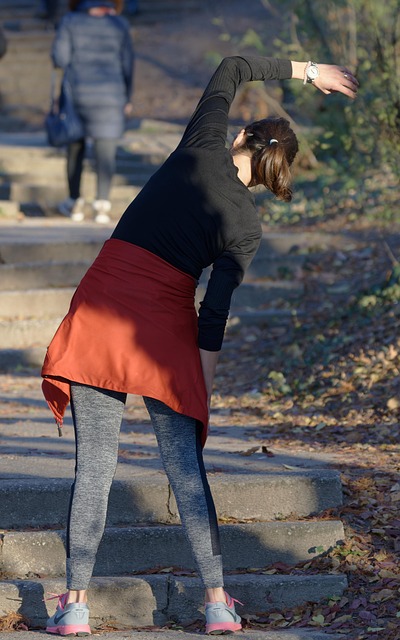Mental clarity and focus, vital for well-being, productivity, and decision-making, are enhanced through mindfulness practices in mental health support programs. By cultivating present-moment awareness and observing thoughts without judgment, individuals can reduce stress, improve cognitive function, and strengthen neural connections related to attention and memory. Simple practices like mindful breathing exercises and fully engaging in daily activities foster mental clarity. Advanced techniques such as yoga, tai chi, and metacognitive practices deepen the mind-body connection and boost self-awareness. Integrating mindfulness into mental health support programs significantly improves focus, manages stress, reduces anxiety, and promotes lasting well-being.
In today’s fast-paced world, achieving mental clarity and focus can feel like navigating a labyrinthine hustle and bustle. However, mindfulness practices offer a game-changing solution. This article explores the profound impact of mindfulness on daily life, providing insights into how it enhances mental health support programs. From understanding the importance of focus to incorporating simple practices and advanced techniques, we’ll guide you through strategies to revolutionize your concentration and overall well-being.
- Understanding Mental Clarity and Focus: The Importance of Mindfulness in Daily Life
- Incorporating Mindfulness into Your Routine: Simple Practices to Start Today
- Advanced Mindfulness Techniques for Deepening Concentration and Overcoming Distractions
- Integrating Mindfulness with Mental Health Support Programs: Maximizing Benefits for Lasting Well-Being
Understanding Mental Clarity and Focus: The Importance of Mindfulness in Daily Life

Mental clarity and focus are essential components of overall well-being, playing a crucial role in enhancing productivity, decision-making abilities, and even emotional resilience. In today’s fast-paced world, where distractions are abundant, maintaining a clear mind can feel like navigating a labyrinthine path. This is where mindfulness practices step in as powerful tools for mental health support programs.
Mindfulness involves cultivating present-moment awareness, observing thoughts and sensations without judgment, and gently guiding the focus back to the here and now. By integrating mindfulness into daily routines, individuals can improve their ability to concentrate, reduce stress, and enhance overall cognitive function. Regular mindfulness practices have been shown to strengthen neural connections associated with attention and memory, thereby fostering better mental clarity and focus, which are vital for navigating life’s challenges effectively.
Incorporating Mindfulness into Your Routine: Simple Practices to Start Today

Incorporating mindfulness into your daily routine can significantly enhance mental health support programs and boost your ability to focus. Start with simple practices like mindful breathing exercises. Take a few minutes each day to pause, close your eyes, and take deep breaths, focusing on the sensation of air filling your lungs. This technique helps calm the mind and body, reducing stress and improving concentration.
Additionally, incorporate mindfulness during everyday activities. Whether it’s eating a meal, walking, or even brushing your teeth, pay full attention to the experience. Engage all your senses, noticing the textures, smells, sounds, and tastes. This practice cultivates present-moment awareness, making it easier to stay focused throughout the day. Regularly incorporating these simple mindfulness techniques into your routine can lead to improved mental clarity and overall well-being.
Advanced Mindfulness Techniques for Deepening Concentration and Overcoming Distractions

In addition to basic mindfulness practices, advanced techniques can significantly deepen concentration and overcome distractions for enhanced mental clarity. One such method is mindful movement, which involves incorporating awareness into physical activities like yoga or tai chi. By focusing on bodily sensations and breath during movement, individuals can sustain attention and cultivate a deeper connection between mind and body.
Another powerful tool is metacognition, the art of thinking about your thinking. This involves actively monitoring your thoughts, identifying mental distractions, and gently redirecting your focus to the present moment. Practicing metacognition enhances self-awareness and enables better regulation of attention, ultimately serving as a robust mental health support program against incessant distractions.
Integrating Mindfulness with Mental Health Support Programs: Maximizing Benefits for Lasting Well-Being

Integrating mindfulness with mental health support programs offers a powerful approach for enhancing mental clarity and focus, while promoting lasting well-being. Mindfulness practices, such as meditation, deep breathing, and present-moment awareness, can significantly benefit individuals navigating various mental health challenges. When incorporated into structured programs, these techniques become tools to manage stress, reduce anxiety, and improve overall cognitive function.
By combining mindfulness with evidence-based therapeutic interventions within mental health support programs, individuals can experience profound effects on their mental resilience and emotional regulation. This integrated approach allows for a holistic treatment strategy, addressing not only the symptoms but also the underlying causes of distress. As a result, participants may gain better control over their thoughts, emotions, and behaviors, fostering improved mental clarity and sustained focus in their daily lives.
Mindfulness practices have proven to be powerful tools for enhancing mental clarity and focus, which are essential components of overall well-being. By integrating simple yet effective techniques into daily routines, individuals can improve concentration, overcome distractions, and better navigate the demands of modern life. Furthermore, combining mindfulness with structured mental health support programs offers a comprehensive approach to cultivating lasting clarity and resilience. Embracing these practices can transform one’s relationship with focus, leading to enhanced productivity, improved emotional regulation, and a deeper sense of calm in all areas of life.
